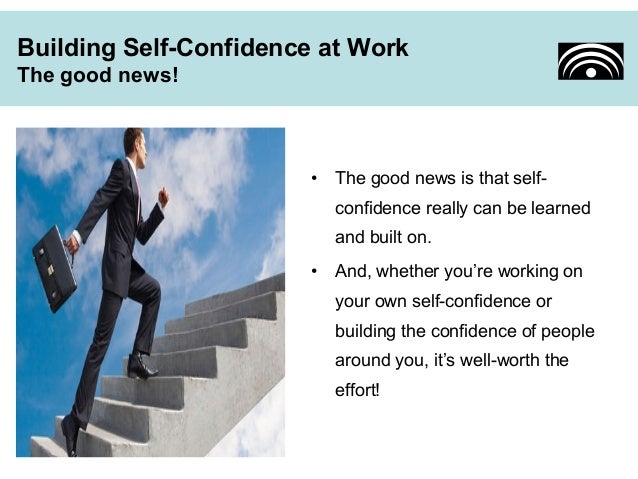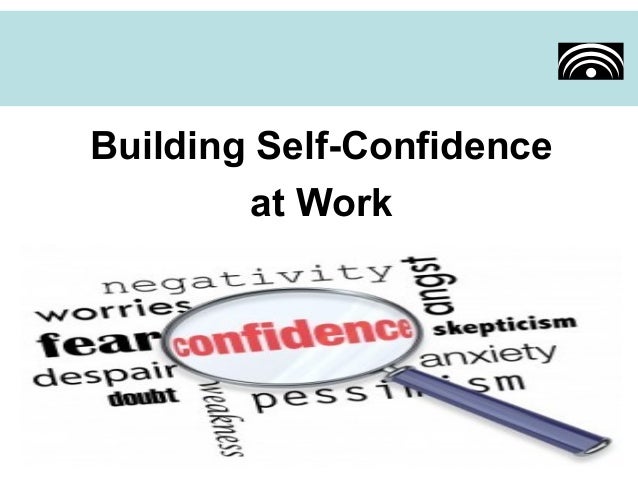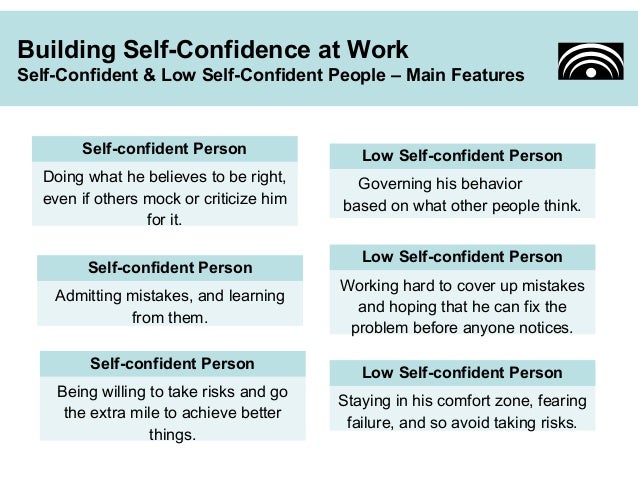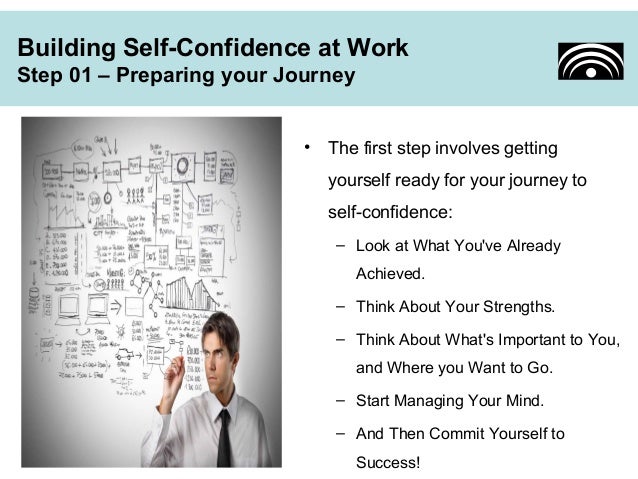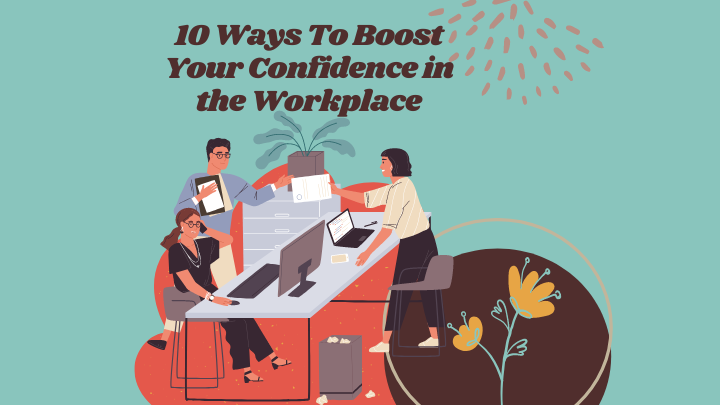Importance Of Confidence In Workplace
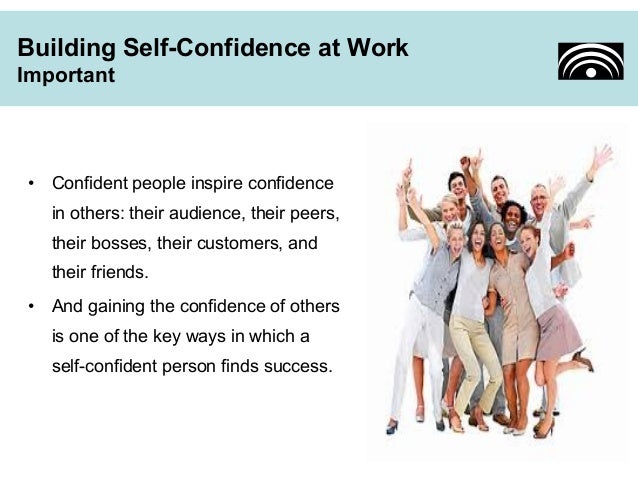
The modern workplace, a complex ecosystem of personalities, skills, and ambitions, often presents challenges that extend beyond technical competence. While expertise is undoubtedly crucial, a less tangible yet equally potent factor dictates success: confidence. Its absence can stifle potential, while its presence can unlock opportunities and drive innovation.
At its core, confidence in the workplace transcends mere self-assurance; it is the bedrock upon which employees build their careers, navigate complex projects, and contribute meaningfully to organizational goals. This article delves into the multifaceted importance of workplace confidence, exploring its impact on individual performance, team dynamics, and overall organizational success. It will also consider potential pitfalls and strategies for cultivating a confident and empowered workforce.
The Individual Impact of Confidence
Confidence directly influences an individual's willingness to take risks. According to a study by the Harvard Business Review, employees who feel confident are more likely to volunteer for challenging assignments and propose innovative ideas, fueling creativity and progress.
Conversely, a lack of confidence can lead to imposter syndrome, a psychological pattern in which individuals doubt their accomplishments and have a persistent, internalized fear of being exposed as a "fraud." This phenomenon can negatively impact performance and mental well-being, often hindering career advancement.
Confident individuals are also more adept at navigating workplace conflicts. They can articulate their perspectives clearly and respectfully, fostering constructive dialogue and collaborative problem-solving. A 2022 report by Gallup suggests that employees who feel heard and valued are significantly more engaged and productive.
Confidence and Team Dynamics
The impact of confidence extends beyond the individual, shaping team dynamics in profound ways. A confident team member can inspire others, creating a positive feedback loop that enhances overall team performance. The presence of confident individuals facilitates open communication, where team members feel comfortable sharing ideas and providing constructive criticism.
Teams with high levels of confidence are also better equipped to handle setbacks. They are more likely to view failures as learning opportunities, fostering resilience and a growth mindset. Research from the Society for Human Resource Management (SHRM) highlights the importance of a supportive and psychologically safe team environment in cultivating confidence.
However, it's crucial to distinguish between healthy confidence and arrogance. Overconfidence can lead to poor decision-making and disregard for others' opinions, hindering team collaboration. Leaders play a vital role in fostering a culture of balanced confidence, where individuals are encouraged to express their ideas without dominating discussions.
Cultivating Confidence in the Workplace
Organizations can implement several strategies to cultivate confidence among their employees. Providing regular feedback and recognition is paramount; acknowledging accomplishments, both big and small, reinforces positive behaviors and boosts self-esteem. Mentorship programs can also be highly effective, pairing less experienced employees with seasoned professionals who can offer guidance and support.
Creating opportunities for skill development is another crucial aspect. Investing in training programs that enhance technical expertise and soft skills empowers employees and increases their sense of competence. Encouraging employees to take on new challenges and providing them with the resources they need to succeed fosters a sense of ownership and accomplishment.
Furthermore, fostering a culture of inclusivity and psychological safety is essential. Employees who feel accepted and valued for their unique perspectives are more likely to feel confident expressing their ideas and taking risks.
"A culture of trust is the foundation upon which confidence thrives," says Dr. Amy Edmondson, a professor at Harvard Business School, known for her work on psychological safety.
Potential Pitfalls and Mitigation Strategies
While confidence is generally beneficial, unchecked arrogance can have detrimental effects. Overconfident individuals may dismiss valuable feedback and underestimate risks, potentially leading to costly mistakes. Organizations need to establish mechanisms for providing constructive criticism and promoting self-awareness.
Another potential pitfall is the creation of an environment where only certain voices are heard. Leaders should actively solicit input from all team members, regardless of their seniority or personality. Implementing anonymous feedback mechanisms can also encourage individuals who may be hesitant to speak up in group settings.
It's also essential to be mindful of cultural differences. What is perceived as confidence in one culture may be viewed as arrogance in another. Organizations with diverse workforces should provide cross-cultural training to promote understanding and sensitivity.
The Future of Confidence in the Workplace
As the workplace continues to evolve, the importance of confidence will only increase. With the rise of remote work and distributed teams, employees need to be more self-reliant and proactive. Confidence will be essential for navigating the challenges of virtual collaboration and maintaining a strong sense of connection with colleagues.
Moreover, the increasing emphasis on innovation and agility will demand a workforce that is willing to take calculated risks and experiment with new ideas. Organizations that prioritize confidence-building initiatives will be better positioned to attract and retain top talent and thrive in a rapidly changing business environment.
In conclusion, confidence is not merely a desirable trait but a fundamental ingredient for success in the modern workplace. By fostering a culture that values self-belief, empowers employees, and mitigates potential pitfalls, organizations can unlock the full potential of their workforce and achieve sustainable growth. The investment in building confidence is, ultimately, an investment in the future.
